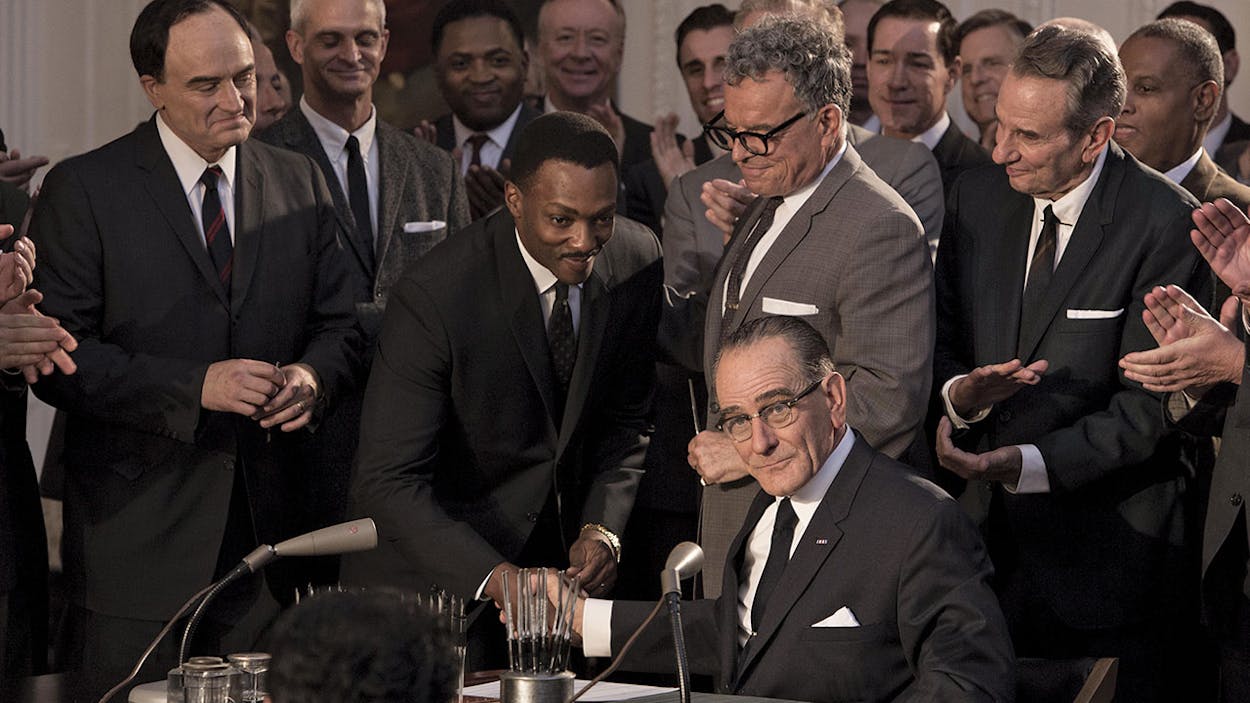The film version of the award-winning play All the Way premieres on HBO tomorrow night, starring Bryan Cranston as Lyndon Johnson, still the only president I’m aware of who owned an “aqua car.”
For the upcoming June issue, I recently interviewed playwright Robert Schenkkan about the origin of the play and how it translated to the screen. Schenkkan has deep Texas roots, and his family had a professional connection to Johnson. Here are a few gems from our conversation:
“When we were looking to cast the part, the casting director would ask, ‘What are we looking for?’ And I would say, ‘We need an actor who can be funny, charming, and charismatic and simultaneously terrifying.’ And if you look at Bryan’s career—the balance between Malcolm in the Middle, which is so funny and so broad in its physicality, and then his chilling turn as Walter White in Breaking Bad—he really has all of that as a performer.”
Regarding LBJ’s legacy:
“I do think there is a tragic quality to LBJ. The domestic policy was what was important to him, what was dear to his heart, and what he felt knowledgeable about and secure in. Not foreign policy. He was not a foreign policy expert, and I don’t think he would have ever considered himself one. He goes into Vietnam with his eyes open as early as 1964. You can listen to his phone conversation with Senator Richard Russell in which LBJ complains loudly that he doesn’t know why we’re there. He doesn’t see the point. What’s more, he doesn’t see any way to win, and he doesn’t see any way to get out. This is in 1964. He not only stays the course, but he doubles down and doubles down and doubles down. The fact that he knows that that’s what’s happening even as he can’t help but make those same decisions over and over again is tragic. The loss, the waste, is just staggering.”
Of course, you can’t ask a political question these days without asking about Donald Trump:
“We have a long history of demagogues in this country—Huey Long, Senator Joseph McCarthy. And of course, Lyndon wrestled for a long time with Governor George Wallace, who was the first demagogue to successfully transfer the covert, entrenched Southern racism into a language that would resonate with blue-collar workers in the Midwest and the Northeast. It’s all a nod and a wink, but Trump’s really playing on one of the sad, enduring notes of the American character. I think LBJ would have regarded Trump as a formidable competitor—he was much too shrewd to have underestimated someone like that—but I also think he would have looked forward to taking him apart.”







